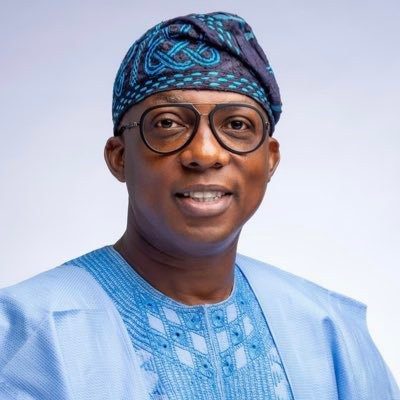Lagos State has once again emerged as Nigeria’s best-performing state in climate governance, clinching the top spot for the second consecutive year in the Subnational Climate Governance Performance Ranking (SCGPR 2.0) developed by the Society for Planet and Prosperity (SPP), under the leadership of Professor Chukwumerije Okereke.
By Chimezie Godfrey
Lagos State has once again emerged as Nigeria’s best-performing state in climate governance, clinching the top spot for the second consecutive year in the Subnational Climate Governance Performance Ranking (SCGPR 2.0) developed by the Society for Planet and Prosperity (SPP), under the leadership of Professor Chukwumerije Okereke.
The 2025 ranking, unveiled in Abuja by the Honourable Minister of Environment, Mr. Balarabe Abbas Lawal, saw Lagos score an impressive 315 out of 360 points — consolidating its leadership position in subnational climate governance.
Reflecting on the achievement, the Honourable Commissioner for the Environment, Barr. Tokunbo Wahab, described the recognition as “a collective triumph for all Lagosians,” adding that it represents “years of deliberate work, strong policies, and the shared effort of every stakeholder and citizen in advancing climate action.”
“This achievement is not just about numbers; it reflects years of deliberate work, strong policies, and the collective effort of every stakeholder, our agencies, partners, and the people of Lagos,” Wahab said. “It shows how evidence-based benchmarking like the SCGPR drives innovation, institutional reform, and service delivery.”
He noted that the consistent ranking success is the product of sustained institutional reforms, strategic investments, and a shared vision under Governor Babajide Sanwo-Olu’s administration.
According to the Commissioner, Lagos has protected more than three million residents in flood-prone areas, supported over 150,000 households with cleaner energy alternatives, and strengthened livelihood resilience across all 57 Local Government Areas (LGAs) and Local Council Development Areas (LCDAs).
“Our goal remains to keep Lagos at the forefront of environmental sustainability and climate resilience, ensuring that every policy improves livelihoods, reduces vulnerability, and enhances the well-being of Lagosians,” he said.
Wahab highlighted several key projects, including the Lagos Climate Adaptation and Resilience Action Plan and the Lekki Low-Carbon Demonstration Zone (LLCDZ) — a ₦120 billion public-private partnership expected to create over 5,000 jobs and cut carbon emissions by 200,000 tonnes annually.
“These initiatives are not only mitigating greenhouse-gas emissions but also stimulating economic growth and creating inclusive opportunities for Lagosians,” he added.
He also cited Lagos’ pioneering Clean Cookstove and Carbon Offset Policy, as well as Africa’s first subnational carbon exchange — projected to generate up to $15 million annually for over 100 small and medium-scale enterprises by 2026.
On climate financing, Wahab revealed that Lagos topped the chart in climate budgeting, with ₦1 billion annual green allocations per LGA, which have contributed to upgrading over 40 critical drainage systems and reducing flood-related losses once estimated at ₦45 billion yearly.
“We translate policies and plans into measurable outcomes,” he said. “Our 8 MW Floating Solar PV Plant at Lagos State University and Waste-to-Wealth projects are already providing cleaner electricity to schools and hospitals serving over 500,000 people.”
The Commissioner commended the SCGPR for establishing a transparent performance yardstick that has encouraged peer learning across states.
“The ranking has reinforced an accountability loop that ensures climate commitments are not abstract promises but concrete actions that protect lives and enhance urban well-being,” Wahab stated.
He dedicated the achievement to “every Lagosian, to Governor Babajide Sanwo-Olu’s visionary leadership, and to all partners building a cleaner, safer, and more sustainable future.”
“When Lagos leads, over 25 million people benefit — through better waste management, cleaner energy, safer housing, and new opportunities for green enterprise,” Wahab declared. “Come SCGPR 3.0, I believe Lagos will lead again, with Nigeria benefiting and the planet winning.”

